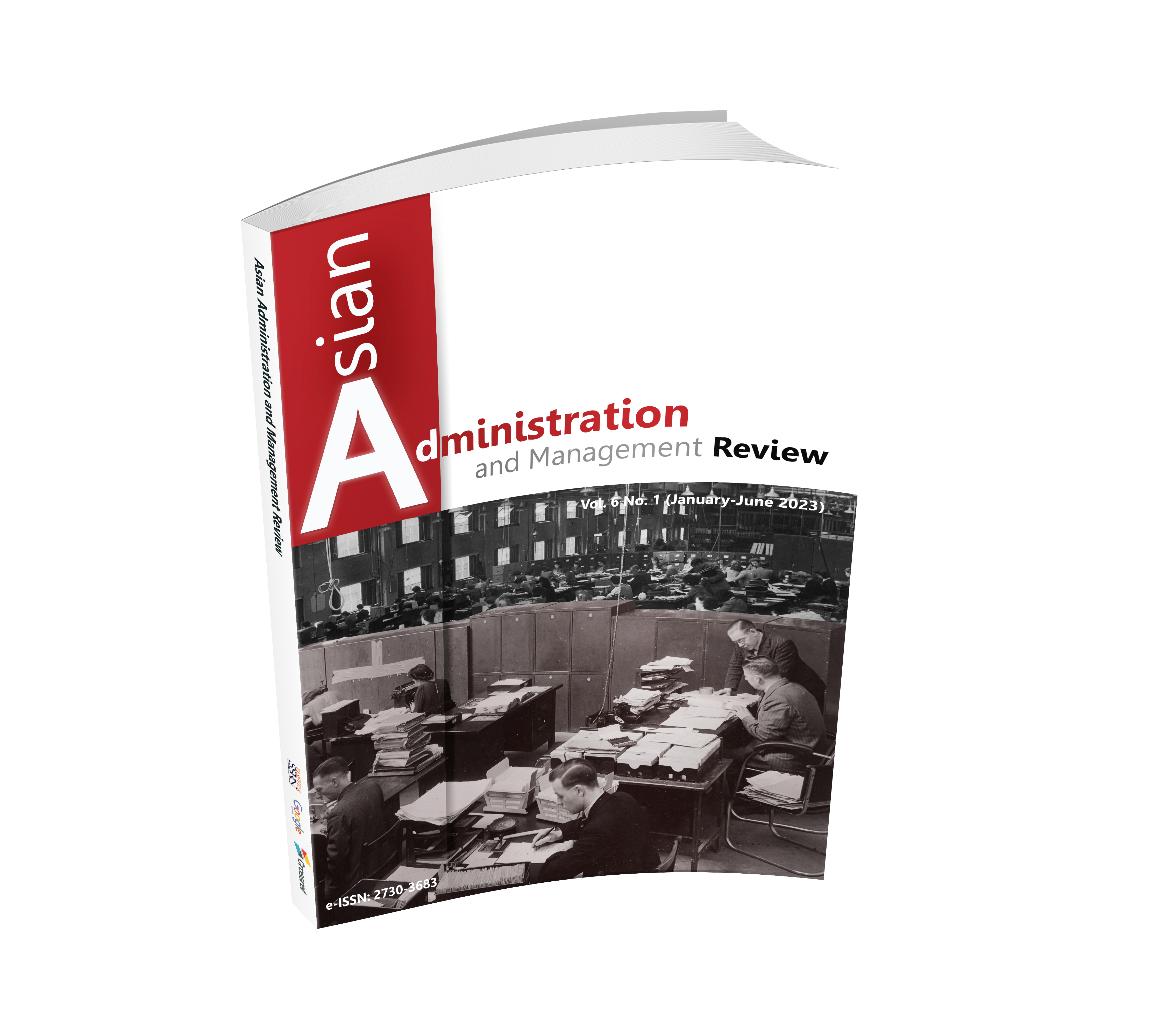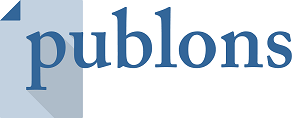HR TRANSFORMING MODEL FOR FUTURE-READY PROFESSIONAL ACCOUNTANTS ABILITIES TO SUCCESSFULLY MANAGE SMES TOURISM INDUSTRY AND BUSINESS THAT FOLLOW THE CREATIVE INDUSTRY VILLAGE IN THAILAND
DOI:
https://doi.org/10.14456/aamr.2023.5Keywords:
Human Resource Transforming Model, Future Ready, STEP Skills, Professional Accountants Abilities, Creative Industry VillageAbstract
Today’s human resource focus skills applied to the skills towards employability and productivity skills are highlighted as reinventing creativity and innovation for leading successful small and medium enterprises. Related to this research, the Lower Central Region of Thailand’s creative industry village project on track to raise tourism industry income. It can be applied to the government plans of Thailand 4.0 and creative industry village 4.0 scheme to disburse a budget of 22 billion baht to promote small and medium enterprises that follow the creative industry village. So, the aims of this study seek to design thinking of human resource model for future-ready. It is applying to professional accountants abilities to successfully manage small and medium enterprise tourism industry and business that follow the creative industry village in the lower central region of Thailand. The original significance of the research findings suggested that the outcome of the skills towards employability and productivity were to design thinking of the human resource transforming model for future-ready affecting in a post COVID-19 of the professional accountants abilities.
Downloads
References
Aburumman, A. (2020). COVID-19 impact and survival strategy in business tourism market: the example of the UAE MICE industry. Humanities and Social Sciences Communications, 7, 141.
Anning-Dorson, T. (2017). Innovation development in service firms: a three-model perspective. International Journal of Services and Operations Management, 28(1), 64-80.
Armstrong, M., & Brown, D. (2019). Strategic Human Resource Management: Back to the future?. Brighton: Institute for Employment Studies.
Association of Chartered Certified Accountants. (2020). Future ready: Accountancy careers in the 2020s: Executive summary. London: Association of Chartered Certified Accountants.
Astuty, E., Rahayu, A., Disman, D., & Wibowo, L. (2018). Breakthrough in Indonesian creative industry through soft innovation. International Journal of Entrepreneurship, 22(2), 1-10.
Bassey, B., & Tapang, A. (2012). Expensed human resources cost and its influence on corporate productivity: A study of selected companies in Nigeria. Global Journal of Management and Business Research, 12(5), 84-91.
Bean, R., & Davenport, T. (2020). The Biggest HR Trends in 2023. Retrieved from www.sympa.com/insights/guides-and-reports/top-hr-trends-in-2020/.
Bhimani, A. (2020). Digital data and management accounting: Why we need to rethink research methods. Journal of Management Control, 31, 9-23.
Calandro, J., & Flynn, R. (2007). On financial strategy. Business Strategy Series, 8, 409-417.
Dellot, B., & Stephens, F. (2017). The Age of Automation. London: Royal Society of Arts.
Deloitte. (2019). Reimagine risk: Thrive in your evolving ecosystem. Retrieved from www2.deloitte.com/content/dam/insights/us/articles/4613_cro-survey/4613_CRO-survey.pdf.
Department of Industrial Promotion. (2018). CIV: Creative Industry Village. Retrieved from www.dip.go.th/th/news/thumb/2018-06-14-03-26-18.
Dissorn, A., & Suwanbamrung, P. (2022). Prediction 2030 human resource model for developing professional accountants’ abilities of small and medium enterprises in the lower central region, Thailand. Journal of Management Information and Decision Sciences, 25(2), 1-13.
Food and Agriculture Organization of the United Nations. (2017). The future of food and agriculture-Trends and challenges. Retrieved from www.fao.org/3/i6583e/i6583e.pdf.
Forbes Insights. (2019). The next-generation accountant. Retrieved from www.forbes.com/sites/insights-kpmg/2019/04/29/the-next-generation-accountant/?sh=6688559aae67.
Godin, S. (2020). The practice: Shipping creative work. London: Portfolio.
HR Future. (2020). Emerging HR trends for 2020. Retrieved from www.hrfuture.net/future-of-work/trending/emerging-hr-trends-for-2020/.
Hung, S., Ching, P., & Fen, L. (2019). Accounting Students' Perception on Skills and Attributes Required Becoming Management Accountant. A paper presented at the 2nd International Conference on E-Business, Information Management and Computer Science, Kuala Lumpur, Malaysia.
Ivey, A., & Ivey, M. (2008). Essentials of intentional interviewing: Counselling in a multicultural world. Boston: Thomson Brooks/Cole.
Leadership Intelligence. (2021). Our passion is people, our purpose is performance. Retrieved from www.leadershipintelligence.com/blogs/ontario-executive-leadership-assessment-coaching-blog#.Yg-XJuhBzIW.
Leggatt, J. (2020). Seth Godin: How to unleash your inner creative. Retrieved from https://intheblack.cpaaustralia.com.au/innovation/how-to-unleash-your-inner-creative.
Machado, H. (2016). Growth of small businesses: a literature review and perspectives of studies. Gestão & Produção, 23(2), 419-432.
Macmillan, T. (1971). The delphi technique. Washington, D.C.: ERIC Clearinghouse.
Moyer, S. (2020). 2020 Predictions: New skills needed for industry survival. Retrieved from www.accountancyage.com/2020/01/02/2020-predictions-new-skills-needed-for-industry-survival/.
Muldowney, S. (2020). The accounting skills most in-demand post-pandemic. Retrieved from https://intheblack.cpaaustralia.com.au/careers-and-workplace/%20accounting-skills-%20in-%20demand-post-pandemic.
O’Shea, S. (2018). Characteristics and skills necessary in accountancy. International Journal of Business and Management, 13(1), 22-32.
Pierre, G., Puerta, M., Valerio, A., & Rajadel, T. (2014). STEP skills measurement surveys: Innovative tools for assessing skills. Washington, D.C.: World Bank.
Pilipczuk, O. (2020). Toward cognitive management accounting. Sustainability, 12(12), 5108.
Pilipczuk, O., Cosenco, N., & Kosenko, O. (2019). Big data: Challenges and opportunities in financial management. Problemy ZarzÈdzania-Management Issues, 17(5), 9-23.
Polyakova, O., & Mirza, M. (2015). Perceived service quality models: Are they still relevant?. The Marketing Review, 15(1), 59-82.
Primi, T., & Wechsler, S. (2018). Creativity and innovation: Skills for the 21st century. Estudos de Psicologia (Campinas), 35(3), 237-246.
Roblek, V., Meško, M., & Krapež, A. (2016). A complex view of industry 4.0. SAGE Open, 6(2), 1-11.
Ross, L., & Kovachev, I. (2009). Management accounting tools for today and tomorrow. London: Chartered Institute of Management Accountants.
Salunke, S., Weerawardena, J., & McColl-Kennedy, J. (2019). The central role of knowledge integration capability in service innovation-based competitive strategy. Industrial Marketing Management, 76, 144-156.
Serraj, R., Krishnan, L., & Pingali, P. (2019). Agriculture and food systems to 2050: A synthesis. In R. Serraj, & P. Pingali. (eds.). Agriculture and food systems to 2050: global trends, challenges and opportunities (pp. 3-45). Singapore: World Scientific.
Smith, K. (2006). Measuring innovation. In J. Fagerberg, D. Mowery, & R. Nelson. (eds.). The Oxford handbook of innovation (pp. 148-170). Oxford: Oxford University Press.
Tajeddini, K., Martin, E., & Altinay, L. (2020). The importance of human-related factors on service innovation and performance. International Journal of Hospitality Management, 85, 102431.
The World Bank. (2016). World development indicators 2016. Washington, D.C.: World Bank Group.
The World Bank. (2018). World development indicators 2018. Washington, D.C.: World Bank Group.
Tsou, H., & Chen, J. (2020). Dynamic capabilities, human capital and service innovation: the case of Taiwan ICT industry. Asian Journal of Technology Innovation, 28(2), 181-203.
U.S. Bureau of Labor Statistics. (2020). Occupational outlook handbook: Accountant & auditors. Washington, D.C.: U.S. Bureau of Labor Statistics.
United Nations. (2020). Policy brief on COVID-19 and transforming tourism. Retrieved from https://unsdg.un.org/sites/default/files/2020-08/sg_policy_brief_covid-19_tourism_august_2020.pdf.
Weber, E. (2015). Industry 4.0 impact on the economy and labor market. Wirtschaftsdienst, 95(11), 722-723.
Whitmore, A., Agarwal, A., & Xu, L. (2015). The internet of things: A survey of topics and trends. Information Systems Frontiers, 17(2), 261-274.
Zhong, B., Luo, W., Li, H., Zhang, Q., Liu, X., Li, W., & Li, Y. (2020). Knowledge, attitudes, and practices towards COVID-19 among Chinese residents during the rapid rise period of the COVID-19 outbreak: A quick online cross-sectional survey. International Journal of Biological Sciences, 16(10), 1745-1752.

Downloads
Published
How to Cite
Issue
Section
License
Copyright (c) 2023 Authors

This work is licensed under a Creative Commons Attribution-NonCommercial-NoDerivatives 4.0 International License.











.png)


